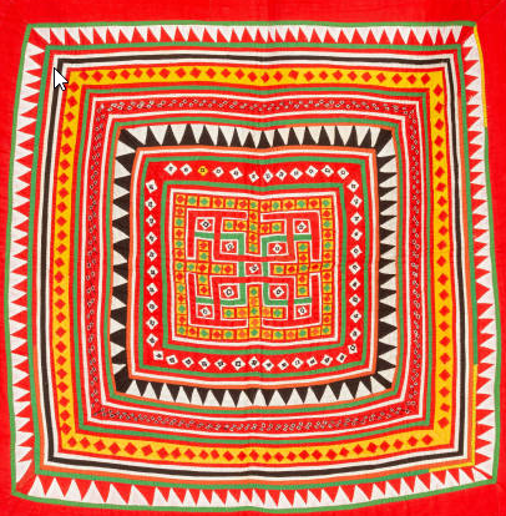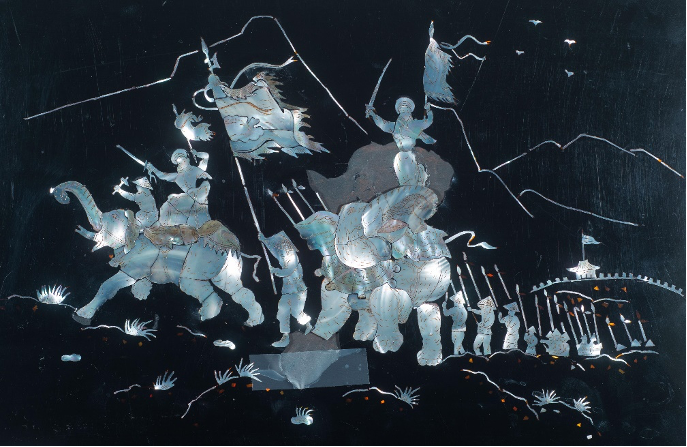The Southeast Asia Community Resource Center Collection: Artifact & Photograph Digitization Project
Background
The years following the Vietnam War saw a massive migration of refugees from Southeast Asia to California. The Sacramento region now has a large and flourishing Asian-American community, including the third-largest Hmong population in the United States. The Southeast Asia Community Resource Center Collection at Sacramento State University Library documents the experience of these refugees, comprising over 6,000 books, journals, newspapers and artifacts from Hmong, Vietnamese, Chinese, Thai, Laotian, Cambodian, Karen, and Mien refugees dating from the late 1970s to the early 1980s. Among the most personal and moving items from the collection are approximately 200 artifacts that document the lived experiences of these people and serve as tangible reminders of the lives and culture they left behind.
Collection
The Southeast Asia Community Resource Center Collection at Sacramento State was compiled over a 20-year period by the Southeast Asia Community Resource Center, in nearby Rancho Cordova, California, as a project of the Refugee Educators’ Network. In 2006 the collection was donated to the Sacramento State University Library. In 2021, with the help of grant funding from the Gladys Krieble Delmas Foundation, over 200 artifacts from the collection were digitized. These artifacts -- including artwork, handicrafts, toys and dolls, musical instruments, items of clothing and jewelry, and photographs -- document and bring to life the everyday experiences of recent Asian refugees to California.
Statement on Culturally Aware Cataloging
As part of our ongoing commitment to initiatives that support diversity, equity, inclusion, and accessibility in our library collections, we strive to describe the collections in our holdings in a way that demonstrates respect and care for the people and communities documented in our collections, particularly those from marginalized and historically oppressed populations.
Our inclusive metadata initiative includes adhering to a multilingual approach to describing collections, ensuring that non-English language collections are described using the words and language that members of those communities would use to describe themselves and their cultural heritage. We endeavor to enlist the aid of subject experts, when possible, to contribute original descriptive metadata in the original script for works in languages that do not use the Latin alphabet. We hope that this approach will support the scholarship of all our researchers and help to contextualize materials in a non-Western framework.
Notes on description: In consultation with our Subject Expert, we have opted to present descriptions of Hmong peoples and cultural heritage artifacts using the more inclusive spelling, “HMong.” Spelling the word "HMong” pays homage to the many dialects that pronounce “HMong” differently. The prevalence of White Hmong groups in the United States has given rise to the more common “Hmong” spelling and pronunciation found in scholarly works and literature.
If you encounter descriptions that contain omissions, errors, or would otherwise like to suggest a correction, please send an email to lib-scua@csus.edu.
Project Participants
- Principal Investigator: David Gibbs, Associate Dean for Collections & Discovery, California State University, Sacramento (CSUS), Library
- Metadata Specialist: Elyse Fox, Digital Initiatives Librarian, California State University, Sacramento (CSUS), Library
- Subject Expert: Pachia Lucy Vang, Hmong Textile Specialist, Culture through Cloth
- Archives Coordinator: Lynn Drennan, Archives & Manuscript Coordinator, California State University, Sacramento (CSUS), Library
- Photographer: Bruce Clarke, Media Production Specialist, California State University, Sacramento
- Student Assistant: Morgan Braun, Special Collections & University Archives Student Assistant, California State University, Sacramento (CSUS), Library


